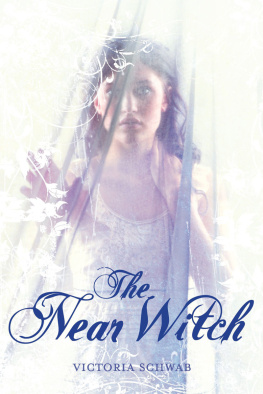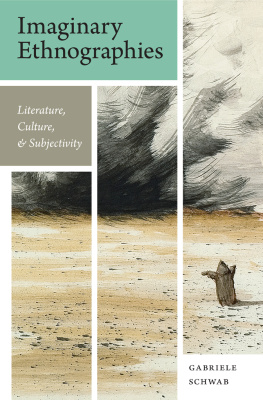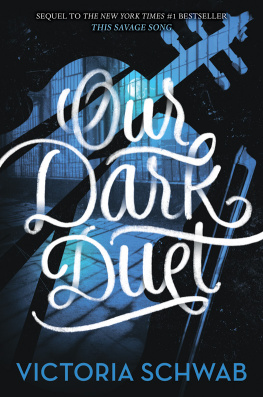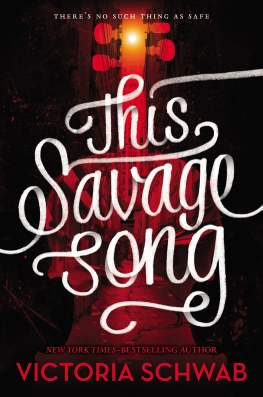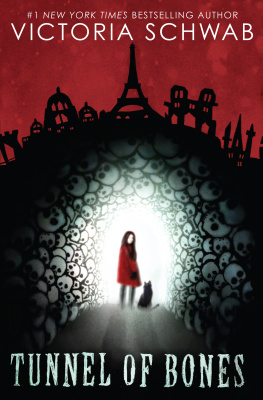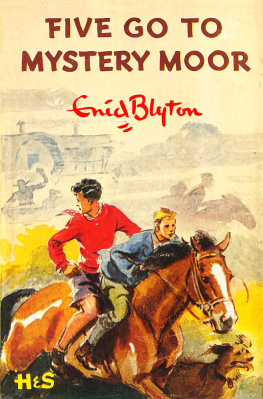Schwab - The Near Witch
Here you can read online Schwab - The Near Witch full text of the book (entire story) in english for free. Download pdf and epub, get meaning, cover and reviews about this ebook. City: New York, year: 2011, publisher: Disney Hyperion, genre: Art. Description of the work, (preface) as well as reviews are available. Best literature library LitArk.com created for fans of good reading and offers a wide selection of genres:
Romance novel
Science fiction
Adventure
Detective
Science
History
Home and family
Prose
Art
Politics
Computer
Non-fiction
Religion
Business
Children
Humor
Choose a favorite category and find really read worthwhile books. Enjoy immersion in the world of imagination, feel the emotions of the characters or learn something new for yourself, make an fascinating discovery.
The Near Witch: summary, description and annotation
We offer to read an annotation, description, summary or preface (depends on what the author of the book "The Near Witch" wrote himself). If you haven't found the necessary information about the book — write in the comments, we will try to find it.
Schwab: author's other books
Who wrote The Near Witch? Find out the surname, the name of the author of the book and a list of all author's works by series.
The Near Witch — read online for free the complete book (whole text) full work
Below is the text of the book, divided by pages. System saving the place of the last page read, allows you to conveniently read the book "The Near Witch" online for free, without having to search again every time where you left off. Put a bookmark, and you can go to the page where you finished reading at any time.
Font size:
Interval:
Bookmark:
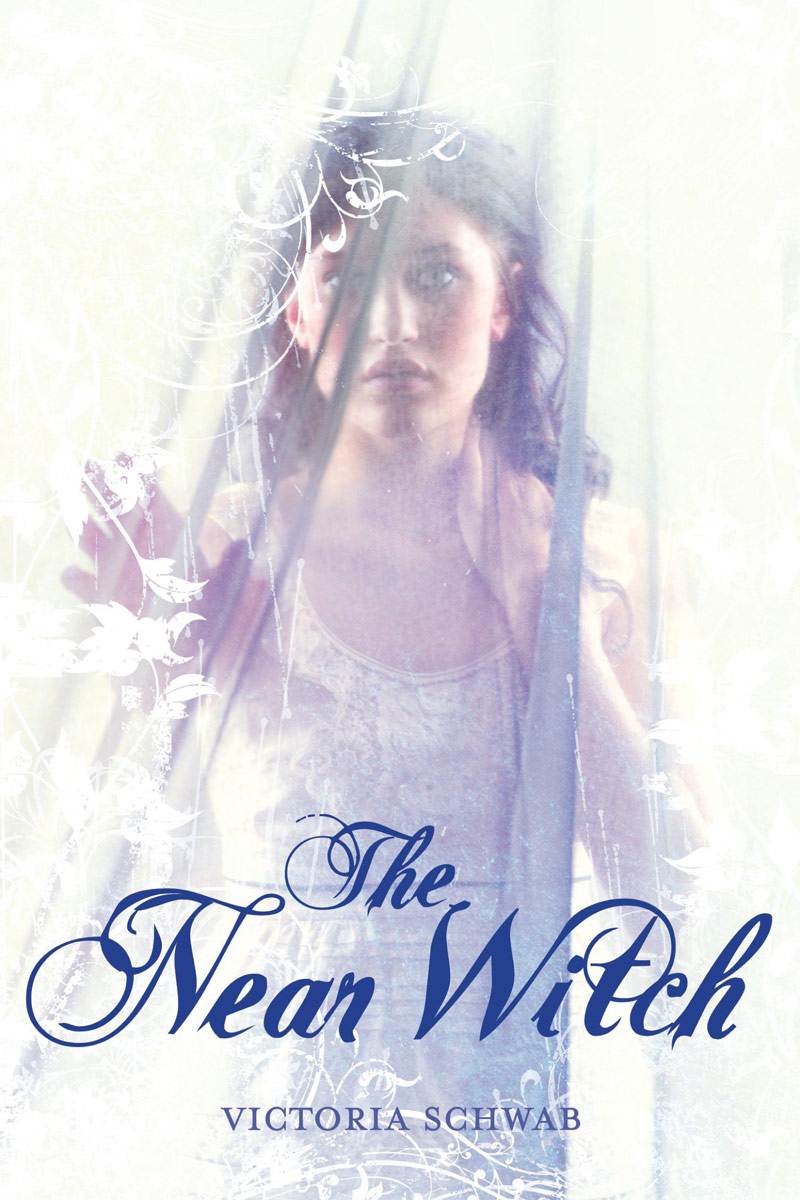
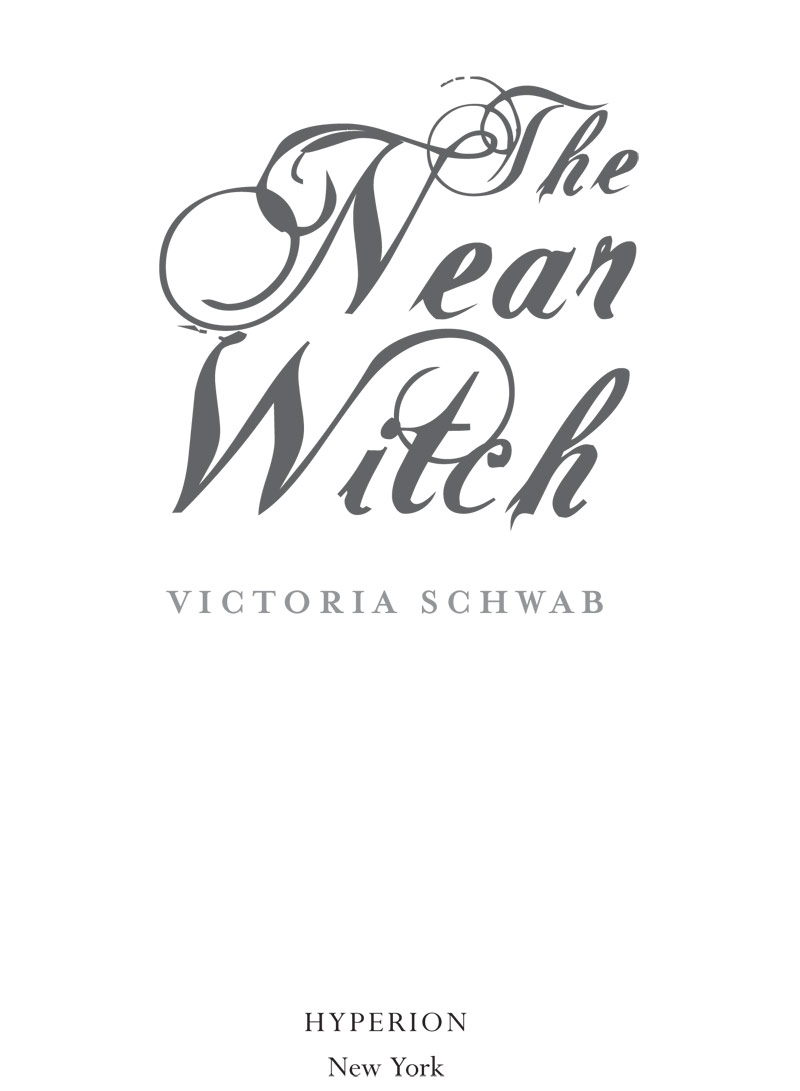
Copyright 2011 by Victoria Schwab
All rights reserved. Published by Hyperion, an imprint of Disney Book Group. No part of this book may be reproduced or transmitted in any form or by any means,electronic or mechanical, including photocopying, recording, or by any information storage and retrieval system, without written permission from the publisher. For information address Hyperion, 114 Fifth Avenue, New York, New York 10011-5690.
ISBN: 9781423152576
To my mother and father,
for never once doubting


IT STARTS WITH A CRACK, a sputter, and a spark. The match hisses to life.
Please, comes the small voice behind me.
Its late, Wren, I say. The fire chews on the wooden stem in my hand. I touch the match to each of the three candles gathered on the low chest by the window. Its time for bed.
With the candles all lit, I shake the match and the flame dies, leaving a trail of smoke that curls up against the darkened glass.
Everything seems different at night. Defined. Beyond the window, the world is full of shadows, all pressed together in harsh relief, somehow sharper than they ever were in daylight.
Sounds seem sharper, too, at night. A whistle. A crack. A childs whisper.
Just one more, she pleads, hugging the covers close. I sigh, my back to my little sister, and run my fingers over the tops of the books stacked beside the candles. I feel myself bending.
It can be a very short one, she says.
My hand rests against an old green book as the wind hums against the house.
All right. I cannot deny my sister anything, it seems. Just one, I add, turning back to the bed.
Wren sighs happily against her pillow, and I slip down beside her.
The candles paint pictures of light on the walls of our room. I take a deep breath.
The wind on the moors is a tricky thing, I begin, and Wrens small body sinks deeper into the bed. I imagine she is listening more to the highs and lows of my voice than the words themselves. We both know the words by heart anywayI from my father, and Wren from me.
Of every aspect of the moor, the earth and stone and rain and fire, the wind is the strongest one in Near. Here on the outskirts of the village, the wind is always pressing close, making windows groan. It whispers and it howls and it sings. It can bend its voice and cast it into any shape, long and thin enough to slide beneath the door, stout enough to seem a thing of weight and breath and bone.
The wind was here when you were born, when I was born, when our house was built, when the Council was formed, and even when the Near Witch lived, I say with a quiet smile, the way my father always did, because this is where the story starts.
Long, long ago, the Near Witch lived in a small house on the farthest edge of the village, and she used to sing the hills to sleep.
Wren pulls the covers up.
She was very old and very young, depending on which way she turned her head, for no one knows the age of witches. The moor streams were her blood and the moor grass was her skin, and her smile was kind and sharp at once, like the moon in the black, black night.
I hardly ever get to the end of the story. Soon enough Wren is a pile of blankets and quiet breath, shifting in her heavy dreams beside me. The three candles are still burning on the chest, leaning into one another, dripping and pooling on the wood.
Wren is afraid of the dark. I used to leave the candles lit all night, but she falls asleep so fast, and if she does wake, she often finds her way, eyes closed, into our mothers room. Now I tend to stay up until shes drifted off, and then blow the candles out. No need to waste them, or set the house on fire. I slide from the bed, my bare feet settling on the old wood floor.
When I reach the candles, my eyes wander down to the puddles of wax, dotted with tiny fingerprints where Wren likes to stand on her tiptoes and draw patterns in the pools while the wax is warm. I brush my own fingers over them absently, when something, a sliver of movement, draws my eyes up to the window. Theres nothing there. Outside, the night is still and streaked with silver threads of light, and the wind is breathing against the glass, a wobbling hum that causes the old wooden frame to groan.
My fingertips drift up from the wax to the windowsill, feeling the wind through the walls of our house. Its getting stronger.
When I was small, the wind sang me lullabies. Lilting, humming, high-pitched things, filling the space around me so that even when all seemed quiet, it wasnt. This is a wind I have lived with.
But tonight its different. As if theres a new thread of music woven in, lower and sadder than the rest. Our house sits at the northern edge of the village of Near, and beyond the weathered glass the moor rolls away like a spool of fabric: hill after hill of wild grass, dotted by rocks, and a rare river or two. There is no end in sight, and the world seems painted in black and white, crisp and still. A few trees jut out of the earth amid the rocks and weeds, but even in this wind it is all strangely static. But Id swear I saw
Again something moves.
This time my eyes are keen enough to catch it. At the edge of our yard, the invisible line where the village ends and the moor picks up, a shape moves against the painted night. A shadow twitches and steps forward, catching a slice of moonlight.
I squint, pressing my hands against the cool glass. The shape is a body, but drawn too thin, like the wind is pulling at it, tugging slivers away. The moonlight cuts across the front of the form, over fabric and skin, a throat, a jaw, a cheekbone.
There are no strangers in the town of Near. I have seen every face a thousand times. But not this one.
The figure just stands there, looking out to the side. And yet, he is not all there. There is something in the way the cool blue-white moon lights his face that makes me think I could brush my fingers right through it. His form is smudged at the edges, blurring into the night on either side, as if hes moving very fast, but it must be the weathered glass, because hes not moving at all. He is just standing there, looking at nothing.
The candles flicker beside me, and on the moor, the wind picks up and the strangers body seems to ripple, fade. Before I know it, I am pressing myself against the window, reaching for the latch to throw it open, to speak, to call the form back, when he moves. He turns his face toward the house and the window, and toward me.
I catch my breath as the strangers eyes find mine. Eyes as dark as river stones and yet somehow shining, soaking up moonlight. Eyes that widen a fraction as they meet my own. A single, long, unblinking look. And then in an instant the stranger seems to break apart, a sharp gust of wind tears through, and the shutters slam closed against the glass.
The sound wakes Wren, who mumbles and peels her half-sleeping form from between the sheets, stumbling through the moonlit room. She doesnt even see me standing at the window, staring at the wooden slats that have blotted out the stranger and the moor. I hear her pad across the threshold, slide open our mothers door, and disappear within. The room is suddenly quiet. I pry the window open, the wood protesting as it drags against itself, and throw the shutters back.
Font size:
Interval:
Bookmark:
Similar books «The Near Witch»
Look at similar books to The Near Witch. We have selected literature similar in name and meaning in the hope of providing readers with more options to find new, interesting, not yet read works.
Discussion, reviews of the book The Near Witch and just readers' own opinions. Leave your comments, write what you think about the work, its meaning or the main characters. Specify what exactly you liked and what you didn't like, and why you think so.

